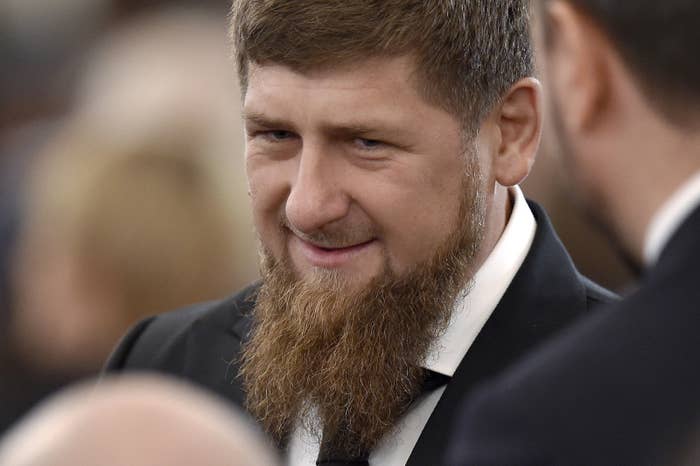
Local authorities in Chechnya are behind the disappearance of more than 100 gay men from across the Muslim-majority republic, a Russian newspaper reported on Saturday.
The revelation came from Novaya Gazeta, a privately owned newspaper known for its investigations. A broad range of men have been taken into custody, according to the newspaper, including two local television personalities. At least three have been killed, the paper claimed, though it was withholding the names of the victims.
The author of the article wrote that she confirmed the disappearances from sources in "the Interior Ministry of the Chechen Republic, inside the federal government, the FSB [domestic intelligence] Department for Chechnya, the Chechen prosecutor's office, and finally local LGBT activists."
An atmosphere of anti-gay feeling has been stewing in Chechnya since early March, Noveya Gazeta reported. It was then that Moscow-based gay rights group GayRussia.ru launched an effort to apply for permits to stage gay rights rallies across Russia. The effort was doomed to fail, according to Nikolai Alexeyev, the project's organizer, but the denied permits were being collected for submission to the European Court of Human Rights as evidence that gay rights are being suppressed within Russia.
The decision to include Kabardino-Balkaria, another Muslim-majority republic in the northern Caucuses, in the effort drew protest after it was reported in the local media and sparked the current round of disappearances in Chechnya.
According to Noveya Gazeta, the Chechen police regard the operation as "preventive mopping up" of undesirable figures.
Chechen President Ramzan Kadyrov operates Chechnya devoid of much constraint from the federal government provided he keeps the region, which attempted to gain its independence in the 1990s, loyal to Moscow. He's managed to do just that in three ways: using federal money to rebuild the mostly destroyed capital city, Grozny; embracing traditional local customs to help co-opt potential extremists, such as making wearing hijabs mandatory for women in public places; and engaging in accused human rights abuses to keep the population in line.
Following the publication of Novaya Gazeta's article, Chechnya's government has gone beyond denying that the men had gone missing — it rebutted the idea that there were gay men in Chechnya in the first place.
“You cannot arrest or repress people who just don’t exist in the republic,” Kadyrov spokesman Alvi Karimov told Interfax. “If there were such people in Chechnya, the law-enforcement organs wouldn’t need to have anything to do with them because their relatives would send them somewhere from which there is no returning.”
Karimov was alluding to the idea that in the deeply conservative republic, relatives of some of the gay men arrested would perform an "honor killing" to rid themselves of their shame. Novaya Gazeta speculated that some of the gay men detained were released not for lack of evidence, but on the hope that their families would do just that.
The Russian LGBT Network on Monday issued a statement saying it was "highly disturbed and concerned" about the reported kidnappings and killings and "outraged by the reaction of the officials of the Chechen Republic, who in fact justify the killings." The group is attempting to contact the victims, the statement confirmed, and is prepared to help evacuate LGBT people from the region.
Ekaterina Sokirianskaia, Russia project director for the International Crisis Group, confirmed to The Guardian that she was aware of the reported disappearances. “I have heard about it happening in Grozny, outside Grozny, and among people of very different ages and professions,” she said. But, she warned, there hasn't been a fully verified case yet. “It’s next to impossible to get information from the victims or their families, but the number of signals I’m receiving from different people makes it hard not to believe detentions and violence are indeed happening.”
While the federal government is apparently not behind the arrests, Russian President Vladimir Putin has made opposition to gay rights a staple of his domestic and foreign policies. In 2013 Russia passed legislation banning "gay propaganda." Presented as a means to protect the country's children from learning about homosexuality, in practice it has become a broad term that has been used to persecute LGBT people since.
Outside Your Bubble is a BuzzFeed News effort to bring you a diversity of thought and opinion from around the internet. If you don’t see your viewpoint represented, contact the curator at bubble@buzzfeed.com. Click here for more on Outside Your Bubble.
